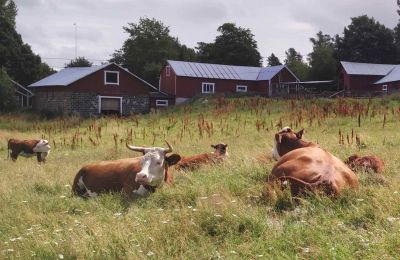An improved diet reduces methane output of cows, fights global warming
Cows are a danger to the environment. The friendly creatures are known to emit quite a bit of methane, one of the most significant greenhouse gases. A group of Finnish scientist have concluded that a controlled diet can reduce the amout of methane released.
One cow emits around 150 kilograms of methane each month. Ruminants such as cows and sheep produce about one third of the methane emissions. Methane emissions. Methane emissions are about one-fifth of all man-made greenhouse gas emissions.
The Natural Resources Institute Finland (Luke) has done research into whether cows could produce less methane emissions on a specific diet. The research programme aims to reduce emissions and provide healthier milk.
The diet control also affects the composition also affects the fatty acid composition of milk. The research programme was a part of the European Union funded programme known as Ruminomics. The programme examined a thousand dairy cows from around Europe for details on the genome, nutirition and rumen microbes, milk composition and other factors.
The cows studied at Jokioinen finland were put into glass cabinets, known as metabolic chambers for a few days to find out the average emissions. According to professor Johanna Vilkki the amount of methane production varies greatly depending on the efficiency of the animal's gut and the feed it's consuming.
The detailed results of the study are not yet published, but it's clear that reducing greenhouse emissions of livestock is one piece of the large puzzle that the humankind needs to put together to reduce greenhouse emissions to slow down global warming.

